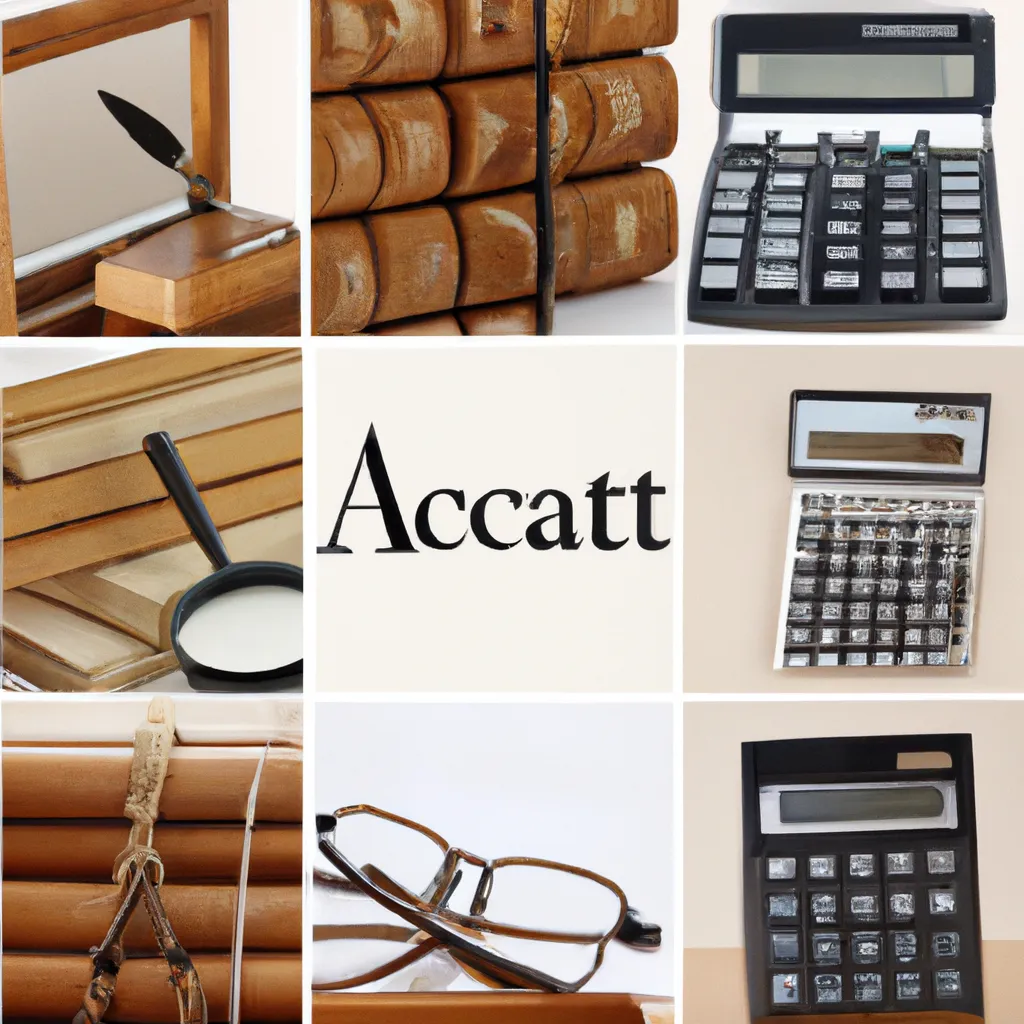Maximize Your inheritance tax Savings in East Riding – Expert Tax Advice: Are you tired of losing a significant portion of your inheritance to taxes. Do you want to make the most out of what you've inherited. Look no further because with expert tax advice, you can maximize your inheritance tax savings in East Riding. Inheritance tax can take a large chunk out of the assets and gifts you receive from your loved ones.
This is why it is crucial to plan and strategize ahead to minimize the impact of taxes. With expert tax advice, you can learn about various legal and ethical ways to reduce your inheritance tax burden and keep more of what you've inherited. But why should you trust expert tax advice. Investing in the right tax consultant or advisor can make a significant difference in the amount of inheritance tax you pay.
Their knowledge and expertise in tax laws and regulations can help you make informed decisions and potentially save you thousands of dollars. So why take the risk of losing a large portion of your inheritance when you can seek the help of a reputable tax expert. Take control of your inheritance and start maximizing your tax savings now.

Understanding inheritance tax: key concepts and benefits
In today's world, death and taxes are two unavoidable realities. While most of us are familiar with the concept of income tax, there is another type of tax that affects individuals and families upon their passing – inheritance tax. Inheritance tax is a tax imposed on the assets and properties that are passed on to the heirs of a deceased individual. Understanding how this tax works and its implications is crucial, especially for those living in east riding. With proper inheritance tax planning, you can potentially reduce your tax liabilities and secure more of your assets for your loved ones. In this section, we will explore the basics of inheritance tax and its benefits.
Exploring the basics of inheritance tax and how it affects you
Inheritance tax, also known as estate tax, is a tax levied on the total value of an individual's assets and properties at the time of their death. It is applicable to assets such as money, real estate, investments, and personal possessions. In the uk, inheritance tax is currently set at 40% for estates worth more than £325,000. This means that if your estate is valued at more than £325,000, your beneficiaries will have to pay 40% of the amount above the threshold as inheritance tax. With the increasing value of properties and assets, more and more families are finding themselves affected by this tax.
For individuals living in east riding, it is important to understand how this tax may affect your assets and your loved ones. With inheritance tax planning, you can potentially reduce your tax liabilities and ensure that your assets are passed on to your beneficiaries as per your wishes. There are various methods that can be employed for effective inheritance tax planning, such as creating trusts and making gifts during your lifetime. Consulting with tax specialists or tax advisors in east riding can help you devise a personalized plan that caters to your unique situation.
The advantages of proper inheritance tax planning in east riding
Proper inheritance tax planning can offer various benefits to you and your loved ones. By planning ahead, you can potentially reduce the amount of tax that your beneficiaries will have to pay, allowing them to receive a larger share of your estate. This can provide a sense of security and comfort to your loved ones during an emotional and difficult time.
Inheritance tax planning also allows you to have control over how your assets are distributed after your death. This is particularly beneficial for individuals who have complex family situations or wish to leave their assets to specific individuals or organizations. With a well-crafted plan, you can ensure that your loved ones and causes close to your heart receive what you intended for them.
Besides these benefits, proper inheritance tax planning can also help you protect your assets from potential creditors or legal claims. It can also minimize the possibility of disputes between your beneficiaries after your passing, ensuring a smooth and peaceful transfer of your assets.
Expert tips on reducing your inheritance tax liabilities
Reducing your inheritance tax liabilities may seem like a daunting task, but with the right approach and guidance, it can be achievable. Here are a few tips from tax specialists and tax advisors in east riding on how you can potentially reduce your inheritance tax liabilities:
1. Make use of annual exemptionsEvery individual is entitled to certain annual exemptions from inheritance tax, such as the annual gift allowance of £3,000. You can use this allowance to make gifts to your loved ones during your lifetime, reducing the value of your estate and potential tax liabilities.
2. Consider creating trustsCreating trusts can be an effective way to transfer assets to your beneficiaries while minimizing your inheritance tax liabilities. Trusts can also provide additional benefits such as asset protection and flexibility in how the assets are managed and distributed.
3. Plan your will carefullyYour will is a crucial document that outlines how your assets will be distributed after your death. Planning your will carefully, with the help of a solicitor or tax advisor, can help you minimize your tax liabilities and ensure that your assets reach the intended recipients.
4. Seek professional adviceLastly, seeking the advice of tax specialists or tax advisors can offer valuable insights into your specific situation and help you devise a tailored plan for reducing your inheritance tax liabilities. They can also assist with complex legal and financial matters, providing you with peace of mind and ensuring that your assets are protected.
Understanding the basics of inheritance tax and properly planning for it can have significant benefits for individuals and families in east riding. By taking the necessary steps, you can potentially reduce your tax liabilities and safeguard your assets for your loved ones. By consulting with tax specialists and following expert tips, you can ensure that your assets are distributed as per your wishes and your loved ones are provided for in the best possible way.

Finding the right tax specialists for your inheritance tax needs
Inheritance tax can be a daunting and complex area of personal finance. It involves determining the value of assets left behind by a deceased individual and calculating the tax that must be paid on those assets before they are passed down to the heirs.
The importance of working with experienced tax advisors
Given the intricacies and potential complexities of inheritance tax, it is crucial to work with experienced tax advisors to navigate through the process. Advisors who specialize in inheritance tax can help individuals and families in the east riding area understand the tax implications of an inheritance and create a solid plan for minimizing tax liabilities.
One of the main benefits of working with experienced tax advisors is their knowledge and expertise in inheritance tax laws and regulations. They stay updated on any changes in policies and can advise clients on the most effective strategies for reducing tax liabilities.
Additionally, tax advisors can provide personalized solutions, taking into account specific circumstances and goals of their clients. This ensures that the inheritance tax planning is tailored to each client's individual needs, rather than following a one-size-fits-all approach.
Choosing the best cpa for your inheritance tax planning
A certified public accountant (cpa) with experience in inheritance tax planning can also be a valuable partner in managing tax obligations. These professionals have a deep understanding of tax laws and can offer strategic advice on minimizing tax liabilities for inherited assets. With their help, individuals can avoid any tax planning mistakes that could result in significant penalties.
When looking for a cpa for your inheritance tax planning needs, make sure to consider their experience and expertise in this specific area. It is also essential to evaluate their track record and ask for references from past clients. Doing thorough research can ensure that you choose the best professional to guide you through the process.
The benefits of hiring chartered accountants for inheritance tax matters
Chartered accountants are also a great resource for inheritance tax planning. These professionals have a higher level of expertise and must adhere to strict ethical and professional standards, giving clients peace of mind.
Chartered accountants can provide a holistic approach to inheritance tax planning, taking into account not only the tax implications but also the overall financial situation of the client. They can identify potential tax planning opportunities and craft effective strategies to minimize tax liabilities.
Moreover, chartered accountants can also offer expert guidance and representation if an estate is subject to an inheritance tax investigation. With their support and expertise, individuals can navigate through this process more smoothly and minimize any potential penalties.
Finding the right tax specialists, such as experienced tax advisors, cpas, and chartered accountants, is crucial for effectively managing inheritance tax. These professionals offer in-depth knowledge, personalized solutions, and strategic advice that can help individuals and families in the east riding area minimize tax liabilities and ensure a smooth process for passing down their assets to their heirs. Don't underestimate the importance of working with these experts in order to make the most of your inheritance and avoid any costly mistakes.

Maximizing your inheritance tax savings in east riding
If you live in east riding, you may be familiar with the complexities of inheritance tax and how it can significantly impact your estate planning. Inheritance tax is a tax on the estate of a deceased person, including any property, money, or possessions they leave behind. In the uk, the inheritance tax rate is 40%, which means that a significant portion of your assets could potentially be taken away from your beneficiaries.
However, with proper planning and strategic use of tax laws, you can reduce your inheritance tax obligations and maximize your savings. In this article, we will discuss some expert techniques and valuable strategies that can help you navigate the world of inheritance tax and transfer your wealth and assets to your loved ones with reduced tax burden.
Estate planning strategies to minimize inheritance tax obligations
The key to minimizing your inheritance tax obligations is to have a solid estate plan in place. This means understanding your assets, their value, and the potential tax implications. One effective strategy is to establish a trust to hold your assets, as this can help reduce the overall value of your estate.
You can also consider gifting assets to your beneficiaries during your lifetime, as long as you do not require those assets to maintain your standard of living. This way, the value of those assets will not be included in your estate and subject to inheritance tax. However, it is essential to seek advice from tax specialists or advisors to ensure that your gifts are within the allowed limits and do not trigger any other tax implications.
Effective use of tax-free allowances and exemptions for inheritance tax savings
There are certain tax-free allowances and exemptions that you can take advantage of to reduce your inheritance tax liabilities. The most common ones are the annual gift allowance and the small gifts allowance. The annual gift allowance allows you to gift up to £3,000 each year without incurring any inheritance tax. This amount can also be carried over to the next year if not used. The small gifts allowance, on the other hand, allows you to make gifts of up to £250 to as many people as you like, without any inheritance tax implications.
Additionally, exemptions are available for specific types of assets, such as business property and agricultural property. If you have these types of assets, it is worth seeking advice from tax specialists on how to structure them to take full advantage of these valuable exemptions.
Expert techniques to transfer wealth and assets to future generations with reduced tax burden
Transferring wealth and assets to future generations is a crucial aspect of inheritance tax planning. One of the most effective techniques to do this is through lifetime gifts. By making gifts to your beneficiaries during your lifetime, you can reduce the value of your estate and, therefore, your inheritance tax obligations. However, this strategy requires careful planning and consideration of any potential tax implications.
Another technique is to utilize trusts. Trusts allow you to transfer assets to your beneficiaries while retaining some control over those assets. This can be especially useful if you want to provide for your beneficiaries but are concerned about their ability to manage significant assets or if you want to protect the assets from potential creditors.
Lastly, it is essential to regularly review and update your estate plan. Changes in your family or financial situation, as well as changes in tax laws, can impact your estate plan and require adjustments to ensure maximum inheritance tax savings.
Final thoughts
Inheritance tax can be a complex and overwhelming concept. However, with the right strategies and guidance from tax specialists and advisors, you can minimize your inheritance tax obligations and ensure that your loved ones receive the maximum benefit from your estate. Make sure to stay informed and up to date on any changes in tax laws and regularly review your estate plan to ensure it aligns with your goals and objectives.
Remember, proper estate planning is crucial for maximizing your inheritance tax savings in east riding. So, seek expert advice, take advantage of tax-free allowances and exemptions, and utilize strategic techniques to transfer your wealth and assets to future generations with reduced tax burden. With careful planning and execution, you can leave a lasting legacy for your loved ones without burdening them with unnecessary taxes.
Navigating complex inheritance tax laws and regulations
The concept of inheritance tax can be complex and overwhelming for many individuals. As the east riding tax specialists, it is our duty to guide you through the latest tax reforms and provide expert advice on how they may impact your inheritance tax obligations.
Understanding the latest tax reforms and how they impact inheritance tax
Inheritance tax laws and regulations are constantly evolving, and it is crucial to stay up-to-date with any changes that may affect your financial planning. The latest tax reforms have introduced several updates to inheritance tax laws, including changes to the nil-rate band and residence nil-rate band.
Under the new changes, the annual inheritance tax-free allowance or nil-rate band has been increased to £325,000 for individuals and £650,000 for married couples and civil partners. The residence nil-rate band, which allows individuals to pass on their main residence to direct descendants without paying inheritance tax, has also been raised to £175,000 per person.
These changes may seem straightforward, but it is important to understand how they apply to your unique situation. Our team of tax specialists can help you navigate these complexities and ensure that you are taking full advantage of the latest tax reforms.
Avoiding common inheritance tax mistakes and costly penalties
While inheritance tax can seem daunting, it is essential to plan ahead and avoid common mistakes that can result in costly penalties. One of the most common mistakes is failing to make use of tax exemptions and reliefs that are available.
For instance, gifts to charity or donations made to political parties are exempt from inheritance tax, and any unused portion of the annual allowance can be carried forward for up to four years. In addition, planning ahead and seeking expert advice can help you structure your estate in a tax-efficient manner, reducing your inheritance tax liability.
Another mistake to avoid is assuming that your estate will not be subject to inheritance tax as it falls below the nil-rate band. With changing property values and other assets, it is essential to reassess your estate regularly and consider any changes in inheritance tax laws.
Staying up-to-date with inheritance tax changes and planning proactively
As inheritance tax laws and regulations continue to evolve, it is crucial to stay proactive and continuously review your financial planning. Our team of tax advisors can provide expert guidance and keep you updated on any changes that may impact your inheritance tax obligations.
Moreover, proactive financial planning can help you maximize tax exemptions and reliefs, reducing your inheritance tax liability. This may include setting up a trust, making gifts to family members, or implementing a life insurance policy, among other options.
At east riding tax specialists, we understand the intricacies of inheritance tax and are dedicated to helping our clients plan and manage their tax obligations effectively. Let us guide you through the complexities of inheritance tax and help secure your financial future.

